FOR ALL AGES
Image: UnSplash
A trip to the British seaside has seldom been more popular, what with coronavirus making flights overseas so risky. But while the children are paddling around or building sandcastles did you ever stop to think how the place you’re in got its name?
Here, we round up 14 of the more popular seaside resorts across England. The list is by no means comprehensive, but we have tried to include representatives from the main seaside holiday centres of England.
The name means exactly what you’d expect -- Blackpool was named for the dark water that once discharged from a drainage channel that ran through a peat bog. One to ponder next time you’re lying on the beach.
Until 1929, Bognor Regis was plain old Bognor. The second part of the name was bestowed upon the town by the king, George V, who had spent some time convalescing at the resort. (Other ‘Regis’ towns include Lyme Regis and Melcombe Regis.) The name ‘Bognor’ is one of the oldest on the south coast. It can be traced to the year 680, and probably means Bucge's shore (Brucge being a female Anglo Saxon name).
A ‘bourne’ in Old English was a small river or stream (hence Holborn in London). Bournemouth almost certainly got its name from springing up at the mouth of a bourne. Curiously, the name didn’t settle into its modern form until the early 20th century. Until then, it was usually written as two words, or even just Bourne. Now we know this, the resorts of Eastbourne, Westbourne and Southbourne also come into etymological focus. It also explains Great Yarmouth, which lies at the mouth of the River Yare and Weymouth on the River Wey. Falmouth, Exmouth, Teignmouth, Plymouth and many other can be traced in this way.
Like Bournemouth, Brighton is a relatively recent name for a much older settlement. Your great, great (x about 6) grandparents would have known the place as Brighthelmstone, which shortened to the present form in the early 19th century. It probably derives from the personal name of Beorthelm who had a tun (or homestead) here. Neighbouring Hove was traditionally pronounced ‘Hoove’. Its origins are mysterious and may refer to a sanctuary, hall or barrow.
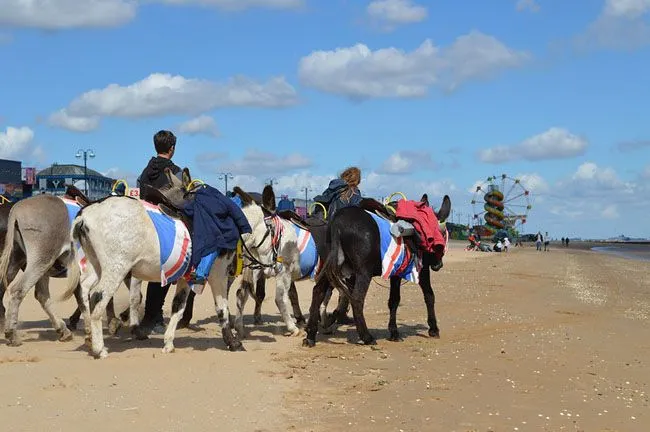
Image by the author
The Lincolnshire resort has a really simple etymology. The Clee bit means clay, and the thorpes bit (very common round here, see also Mablethorpe and Scunthorpe) is from the Viking word for a village.
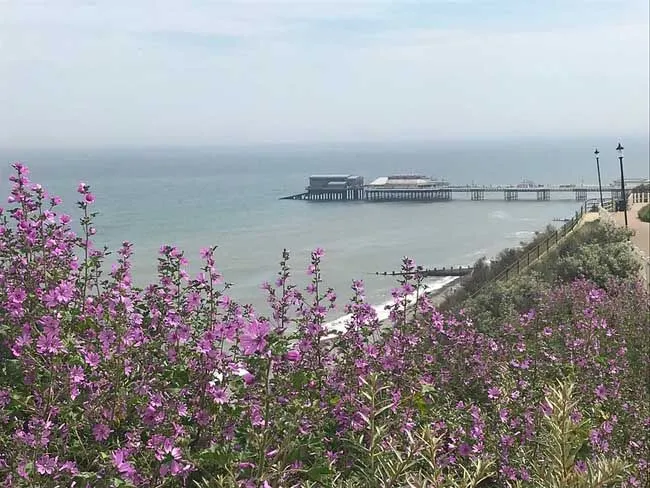
Image by the author
By contrast, this Norfolk town does not crop up until the 13th century. Its derivation isn’t certain, but may come from the Old English for ‘gap in the cliffs’ or else ‘crow’s mere’ (mere being a pool).
Folkestone is another ancient place name, recorded as far back as the 7th century. It most likely comes from ‘Folca's stone’, remembering a landmark used for meetings, overseen by a chieftain called Folca.
The Kentish town is possibly an etymological twin with Cromer. It’s name may also derive from a gap (gate) in the cliffs, where a drainage pool (mar or mere) would form.
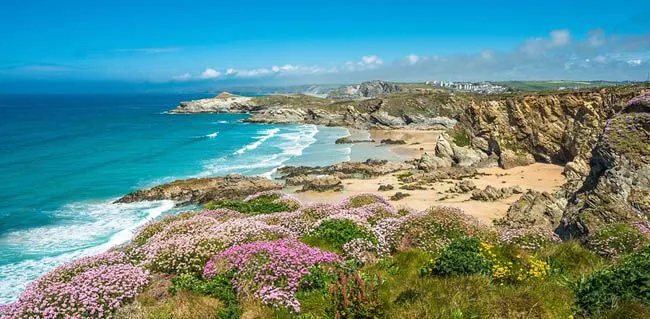
Image: iStock
One of those names where you can probably guess the origins. Newquay’s name dates back to the 17th century, when a new quay was constructed on the beach front. Its Cornish name of Tewynblustri was inspired by the word for sand dunes in that language.
Site of the first Butlins holiday camp, Skegness is often referred to affectionately as Skeggy. The nickname recalls its probable origins. A ‘Skeggi’, in Viking speak, was a bearded person. So Skegness was possibly the headland belonging to a bearded warrior.
The resort of choice for London’s East-Enders was originally a small, insignificant south-end to the village of Prittlewell. Now Prittlewell is all but unheard of, and Southend is the mammoth holiday town we all know and love.
The beautiful Cornish town was named after the Irish saint of the same name (or Ia in Irish), who supposedly visited the area in the 5th century, when Cornwall had slipped back into paganism.
Both Torquay and Torbay take their name from a large hill or ‘tor’, still evident at the centre of the town. The ‘quay’ part is self-evident.
The Victorian-style resort on the Isle of Wight has a name from the 17th century, thought ot come from local landowners the le Vyntener family. Before this, it was known as Holeweia, a reference to either a holy well or a holloway.
Surf our archive of top tips for family trips to the beach.
Read The Disclaimer
At Kidadl we pride ourselves on offering families original ideas to make the most of time spent together at home or out and about, wherever you are in the world. We strive to recommend the very best things that are suggested by our community and are things we would do ourselves - our aim is to be the trusted friend to parents.
We try our very best, but cannot guarantee perfection. We will always aim to give you accurate information at the date of publication - however, information does change, so it’s important you do your own research, double-check and make the decision that is right for your family.
Kidadl provides inspiration to entertain and educate your children. We recognise that not all activities and ideas are appropriate and suitable for all children and families or in all circumstances. Our recommended activities are based on age but these are a guide. We recommend that these ideas are used as inspiration, that ideas are undertaken with appropriate adult supervision, and that each adult uses their own discretion and knowledge of their children to consider the safety and suitability.
Kidadl cannot accept liability for the execution of these ideas, and parental supervision is advised at all times, as safety is paramount. Anyone using the information provided by Kidadl does so at their own risk and we can not accept liability if things go wrong.
Kidadl is independent and to make our service free to you the reader we are supported by advertising.
We hope you love our recommendations for products and services! What we suggest is selected independently by the Kidadl team. If you purchase using the buy now button we may earn a small commission. This does not influence our choices. Please note: prices are correct and items are available at the time the article was published.
Kidadl has a number of affiliate partners that we work with including Amazon. Please note that Kidadl is a participant in the Amazon Services LLC Associates Program, an affiliate advertising program designed to provide a means for sites to earn advertising fees by advertising and linking to amazon.
We also link to other websites, but are not responsible for their content.
Was this article helpful?

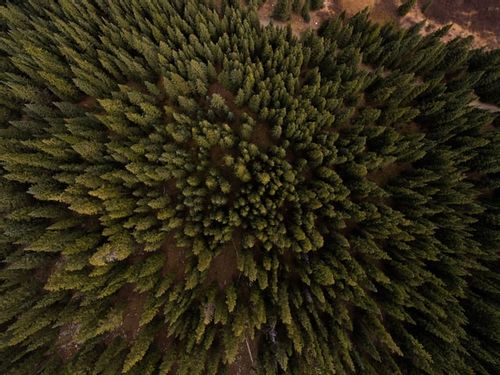
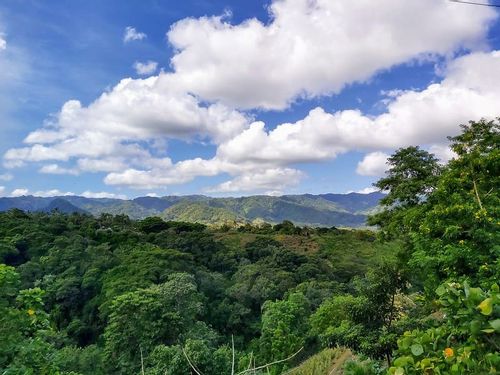
Browse Category



We’ll send you tons of inspiration to help you find a hidden gem in your local area or plan a big day out.



Check your inbox for your latest news from us. You have subscribed to:
Remember that you can always manage your preferences or unsubscribe through the link at the foot of each newsletter.